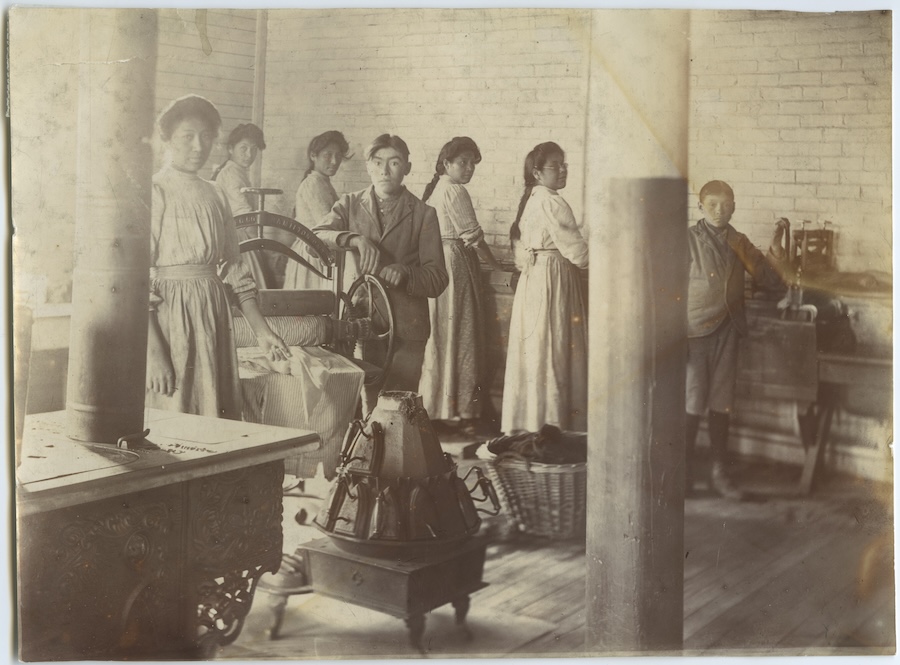Between 2018 and 2022, I helped some Nishnaabeg, including Bonnie Bressette, write a book about their struggle to reclaim their home reserve in southwestern Ontario. One Sunday, before going to Bressette’s place for supper, I dropped in at a local United Church service. I had heard that someone in the congregation had photos of some of the children who’d been sent to the nearby Mount Elgin residential school — which was run by the United Church — and asked where they might be. I thought that Bressette, in her 80s, would be interested since her mother, Hilda, had been forced to attend.
I was in Bressette’s home helping her peel potatoes when I casually mentioned the photos. She stopped peeling and looked at me fiercely. She wanted copies. She’d pay for them, too.
You may unsubscribe from any of our newsletters at any time.
I was jolted by her response. These photos weren’t just of interest to Bressette — they were her life, and the lives of all the aunties, uncles and cousins to whom she is related.
More on Broadview:
-
Lost records, found roots: How a Métis genealogist helps people uncover their Indigenous ancestry
-
New wave of Indigenous-led operas are reimagining the art form
-
Indigenous artist’s mural designs in Port Alberni church represent hope and healing
When I returned to my motel room later, I felt restless, so I lit a candle and let the jolt I’d felt earlier resurface. While I had read about the high death rate among residential school children, the reality of these premature deaths as lives cut off and permanent holes left in families and communities had remained remote.
I stared into the candle flame, aching at that remoteness, aware too that in a way it echoed the indifference of those school officials who let all these children die in their care. I sat with that indifference and the racism in its shadow. I sat, too, with Bressette’s urgent reaction. I sat there as the candle burned lower, feeling that urgency, identifying with it. I was starting to make Bressette’s reality part of my own.
This goes to the heart of what reconciliation requires: a reconciliation of realities, with settlers like me opening our hearts and minds to the realities and priorities of people like Bressette.
The United Church of Canada followed up its 1986 apology to Canada’s Indigenous Peoples with a 2007 commitment toward “healing and building right relations.” Reconciliation requires finding personal and institutional opportunities for engagement and relationship-building around issues that matter to Indigenous people today.
That’s when healing can happen, as it did with me when I approached the Nishnaabeg, whose forebears were associated with the 1827 treaty that had legitimized my forebears settling in present-day southwestern Ontario in 1832.
I could have recolonized that moment with Bressette if I’d brushed off the jolt. But I cared about her, and the jolt of our differing perspectives stood in the way of a real relationship with her — let alone me being able to be the “treaty sister” she once referred to me as. So I took on its challenge and have kept pursuing the missing photographs.
Editor’s note: Bonnie Bressette died on March 19 as we were readying the print issue for press.
***
Heather Menzies is an award-winning author. Her latest book is Meeting My Treaty Kin: A Journey Toward Reconciliation.
This story first appeared in Broadview’s June 2024 issue with the title “Reimagining Reconciliation.”














